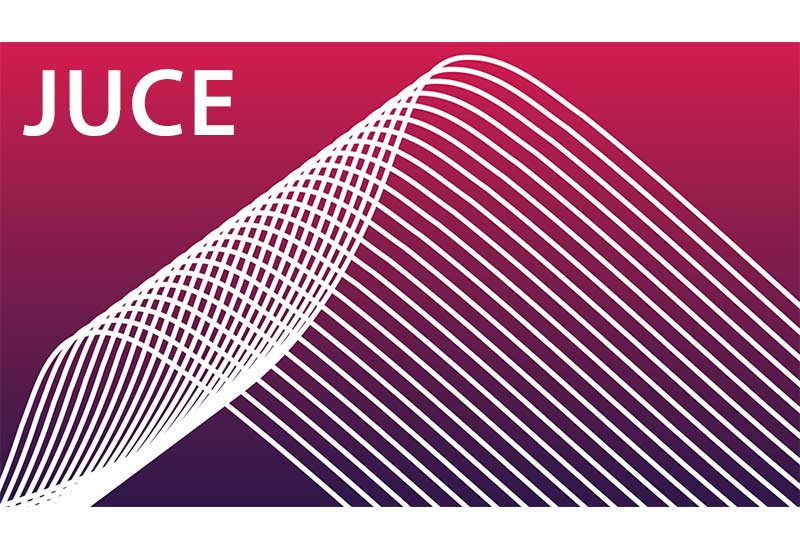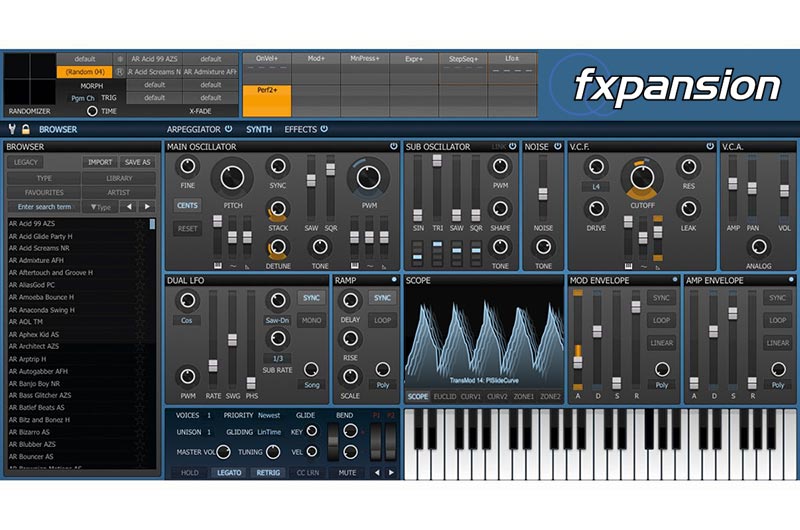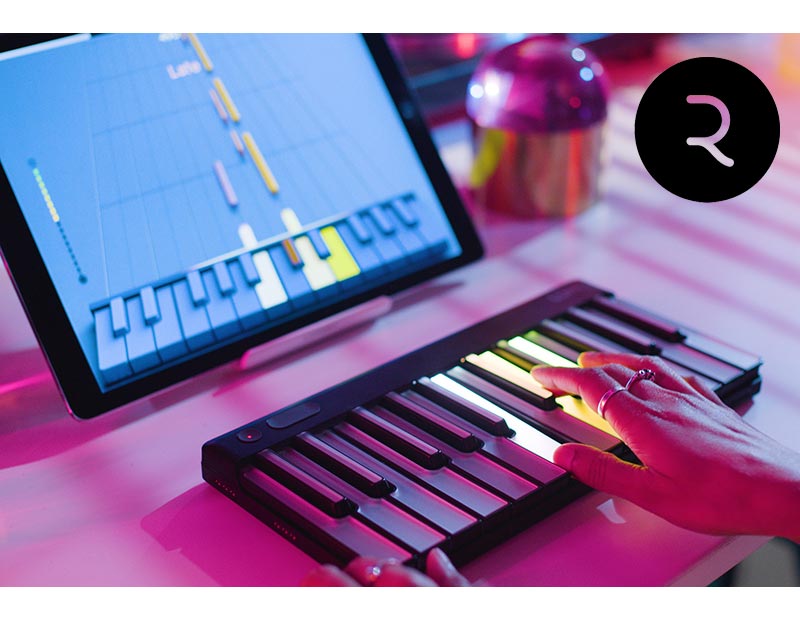Roli, the UK music concern mostly known for their innovative Seaboard Multidimensional Polyphonic Expression (MPE) MIDI controller, has suddenly gone on a diet shedding several of their enterprises that they acquired after receiving debt and equity financing from TriplePoint. After renegotiating the $6.6 million worth of loans TriplePoint, the Silicon Valley-based investment firm, reduced the value of its stake in Roli by 95 percent and wrote down the value of its debt to 75 cents on the dollar.

Keep The JUCE Flowing
The first to go was JUCE, the cross-platform audio app development framework developed by Jules Storer that Roli purchased in 2014. Roli used JUCE to develop their Equator soft-synth, but it’s also the technology behind Cycling ’74 and UVI’s Beathawk iOS audio workstation. JUCE was picked up by PACE Anti-Piracy Inc, who also command the iLok license management system.

The good news for Roli is that they retained the services of Jules Storer who enjoys a proper working relationship with Roli’s CEO, Roland Lamb. Storer, who also developed the digital audio workstation, Tracktion, will continue development of the SOUL project (SOUnd Language), a platform for writing and running audio code, and perhaps some new enterprises once Roli is on solid financial footing.

Next to go was the BFD product from Roli’s FXpansion division. BFD, a popular acoustic drum simulator that is enjoyed by studio engineers who relish it’s ability to augment recorded kits, was sold to InMusic, the same conglomerate behind Akai, Numark, Alesis and M-Audio. According to Roli, FXpansion was absorbed into the company and they have retained all employees.
To Blend Or Not To Blend?
Blend, the music collaboration network, could be the next to end up on the chopping block, Roli bought the company in late 2015 to add a social component to their vertical, but it certainly hasn’t made much of an inroad in expanding it’s reach. It’s hard to determine how much Blend weighs Roli down, but it would be consistent with their new belt-tightening to see division get the axe before the end of 2020. When asked about the status of Blend, Roli refused to comment beyond InMusic’s press release.
It’s not a big surprise that Roli is casting off these acquisitions. With their finances in need of cash, Triplepoint probably mandated the company trim the fat from their concern when they provided a fresh infusion of $4.1 million to keep the company viable. While the Roli Seaboard Rise was a magical new product when it debuted back in 2015 (See FutureMusic’s Roli Seaboard Rise Review), Roli has not enjoyed the same success with their Blocks system. Although our Editor-At-Large described the debut as “one of the best examples of a company transferring their core intellectual property from a professional application to the consumer market,” when put to a long-term test by our team of multiple reviewers (See FutureMusic’s Roli Blocks Review), it revealed a few deficits that hampered its widespread adoption by the consumer market, including a high price point and cumbersome app. Apple ultimately removed Blocks from their retail stores. However, the innovative playing surface and modular methodology could be posed for a rebound if Roli can make some hard decisions.

Enter Lumi
While Roli may have failed to get the masses on board with Blocks, there are several innovative aspects to the ecosystem that the company may target to additional markets, including live performance and self-instruction. Enter Lumi.
Lumi is Roli’s latest product and unlike its other offerings, it was launched on Kickstarter with a 100,00 quid funding requirement. As of this writing, it has exceeded that number sixteen fold and is now at £1,629,014. Not surprising, due to Covid-19 and the typical delays associated with many Kickstarter campaigns, some shipments were delayed by five months. However, a batch of early single orders where indeed shipped at the end of 2019 as promised.
The Lumi is somewhat of a departure for a company that is all about Multidimensional Polyphonic Expression. While it does include polyphonic aftertouch, it does not feature the “Five Dimensions Of Expression” that the company championed with they launched the first Seaboard. Instead, it touts a keyboard that can change each key color with embedded LEDs using a technology Roli calls Brightkey. Like other color-coded keyboards, the idea is to provide a fun, instructional environment fueled by the Lumi app. It uses the GuitarHero “runway” metaphor where you match the streaming colors to the same color keys to learn popular songs. The Lumi app includes instructional “bites” that encourage you to continue your lessons all the way to learning to read sheet music. The gamification of the learning process looks compelling, but the achilles heel of any self-taught learning system is the inability to get specific answers to questions that arise during the instruction.
Roli gave the keys a lot of attention beyond Brightkey. They needed to fit into the compact and modular Blocks system, but Roli also wanted them to “feel great to play.” They have a custom size of DS 5.5 that claims to be “optimized for the average human hand, plus 92% of the plunge distance of a grand piano keyboard.” Each Lumi keyboard spans two octaves, but using Roli’s proprietary magnetic connectors, you can “snap” several Lumi’s together, creating an ever expanding keyboard. Roli also boasts that the Lumi is a fully featured MIDI controller and can be used with digital audio workstations (DAW), other software applications and hopefully deep hardware integration. Hello, ASM HydraSynth desktop! One touchpoint is live performance. The Brightkey “disco lightshow” would certainly be well-suited for certain types of performances and make keyboard solos a little more exciting.
What We Need Is More Cowbell – Or MPE-Enabled Soft Synths
To remain viable, Multidimensional Polyphonic Expression needs consistent and continual assistance on the software front. While Equator brilliantly demonstrated what Roli’s MPE Seaboard controller could achieve as far as expression, the MPE movement could really use a breakout star that demands attention, making synthesists run, not walk to their nearest MPE keyboard retailer. For Roli, the acquisition of FXpansion provided some alternatives as far as Strobe and Cypher, but more developers need to get on board to offer a diversity of products and sounds.
Getting current soft synths with a dedicated and passionate user base to jump in and make their soft synths MPE compatible, such as Lennard Addink’s Sylenth1 and Native Instruments’ Massive X, would certainly help push the expansion and adoption of MPE, but that’s certainly easier said than done. Roli did get Steve Duda’s popular Serum to add MPE with persistent and patient nudging, which is a huge win.
The other question that comes up when taking about Roli’s acquisitions is why didn’t they go after other MPE dedicated concerns so they could essentially own the technology in the market. There are several contenders, including Sensel’s Morph – Expressive E’s Osmose and TouchKeys. Acquiring one of these companies would have allowed Roli to license their technology to keyboard manufacturers, essentially becoming the Fatar of the MPE world. It would have also broadened the appeal of their MPE portfolio by following a more traditional design for players who found their squishy silicon-based playing service undesirable.
The influx of extra cash from Triplepoint is a nod of confidence from the credit manager. On a March earnings call, Christopher M. Mathieu, Triplepoint’s Chief Financial Officer, had this to say about Roli: “We make the decision to either commit more capital to preserve and protect our interest when we know that we have line of sight or confidence about full recovery. We wouldn’t deploy more capital if we didn’t think it was beneficial with the bigger goal of getting all of our capital back.” The good news is that Roli has decided to refocus on their core competency and make the hard decision to shed some of these entities that didn’t further their mission. Hopefully, the Lumi puts them back on track, invigorates their Blocks ecosystem and allows them to further the MPE cause by getting more manufacturers excited about the technology.








